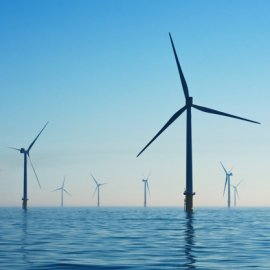RESCUE, part 22: What is Net Zero?
-
English
-
ListenPause
[intro music]
Welcome to World Ocean Radio…
What is Net Zero?
I’m Peter Neill, Director of the World Ocean Observatory.
Over the past decade in international gatherings of corporate and government leaders, concern for the destructive evidence of climate change has led to pledges and commitments of trillions of dollars to be invested in strategies and entities that will bring emissions down to meet a targeted goal of reduced global warming by 2030 or 2050 in the hope of mitigating or reversing negative effect.
What has been revealed subsequently is that the goals have not been met, the funds have not become available, the investments in alternatives have not occurred, the various financial tools for such change have been co-opted or corrupted, and the concept of net zero – negative realities offset by positive engagement – has been revealed as a fraud.The single, most destructive concept has been the exercise of carbon offsets – in fact, the trade-off of funds invested in alternative climate-reducing initiatives in exchange for continuing emissions, in truth, an adaptation of the problem masquerading as the implementation of a solution. The paradox is inevitable; the hypocrisy is demonstrable; the progress teeters between little to regress.
Corporate accounting enables the duplicity; the public relations departments pump out the press releases and advertisements; the offsetting programs in the rainforest are found to be neglected and unfinished; and the corporate claims of solutions are not backed-up by the reality on the ground.
What has been revealed is that the original goals were not large enough; less than half the funds pledged have actually been invested; what has been invested has not been reviewed and evaluated for continuity and effect; and carbon emissions have not actually been reduced at all. To make sure that it all proceeds a-pace, the next world climate meeting, COP 28, will be held in the United Arab Emirates, the sixth largest producer of petroleum in the world – at 3.2 million barrels per day - under the chairmanship of Dr. Sultan Ahmed Al Jaber, also the chair of Masdar, Abu Dhabi’s largest energy producer. Rationalizations abound; the optics are blurred. If COP 27 was any indication, the next meeting will continue the illusion of commitment and change. The profits today from production of oil and gas are at record highs, along with temperatures, drought and famine, food and health insecurity, and millions in both the developed and un-developed worlds who are suffering today, and more, tomorrow.
So, how can we ever get to net zero? It seems clear that we cannot rely of government and the energy sector to make the meaningful difference. The power of the vested interests and the profits are just too much the short-term life’s blood of global finance. Voluntary reductions and energy industry offsetting investments seem to have already failed. What to do?
There are three paths forward:
First, remove the enormous subsidies received by these oil companies from government to reduce the balance sheets, profits, and shareholder distributions to reality and to set a base line against which the return of alternative investment can be measured.
Second, there are thousands of alternative energy projects crying out for transformative capital – wind, solar, electric, and supporting innovations and technologies, that are aggressively pitching the private investment and venture capital communities with the promise of both financial and social return. Each one represents a step up from minus to net zero and beyond.
And, third, there are the many large national and international banks and sovereign funds, public and private endowments and pension funds that could shift exclusively to these alternatives, accepting lesser return made profitable and good by the value of social return. But this would require that managers accept and respect such change as a necessary exercise of fiduciary responsibility, understanding that their beneficiaries are all of us, the ultimate recipients of fiscal and social value as an exercise of RESCUE
R renewal;
E for environment;
S for society;
C for collaboration;
U for understanding;
and E for engagement.We will discuss these issues, and more, in future editions of World Ocean Radio.
World Ocean Radio is distribution by the Public Radio Exchange and the Pacifica Network for use by college and community radio stations worldwide. Find us whereever you listen to podcasts and at world ocean observatory dot org where the full catalog of World Ocean Radio episodes is now searchable by theme. Find the RESCUE SERIES by clicking on the ‘solutions’ banner.
[outro music]
0The multi-part RESCUE series continues this week with a discussion of the reality of carbon offsets, corporate accounting, and the concept of net zero. In this episode we lay out three paths forward toward a sustainable future: 1. remove subsidies 2. embrace renewable alternatives and 3. shift funds and banks to these options. RESCUE as an acronym offers a plan for specific action and public participation: Renewal, Environment, Society, Collaboration, Understanding, and Engagement.
About World Ocean Radio
5-minute weekly insights dive into ocean science, advocacy and education hosted by Peter Neill, lifelong ocean advocate and maritime expert. Episodes offer perspectives on global ocean issues and viable solutions, and celebrate exemplary projects. Available for syndicated use at no cost by college and community radio stations worldwide.
Image
Zhang Kaiyv on Unsplash
@zhangkaiyv
- Login to post comments



